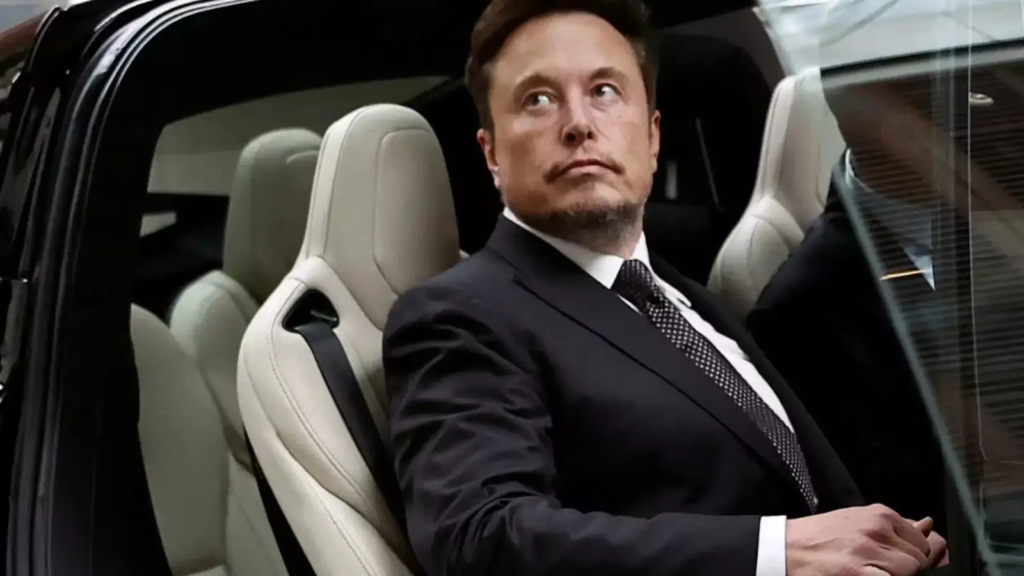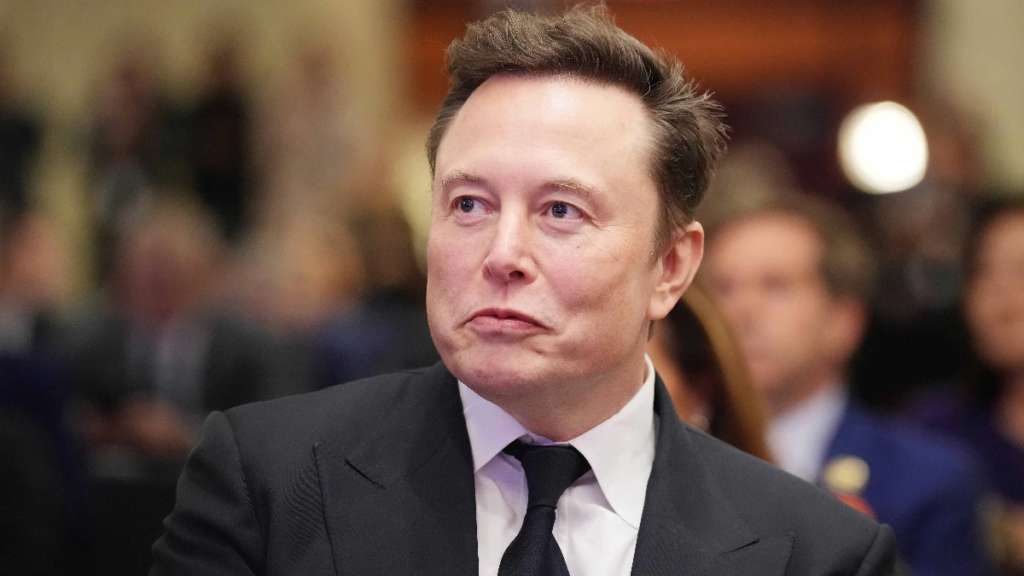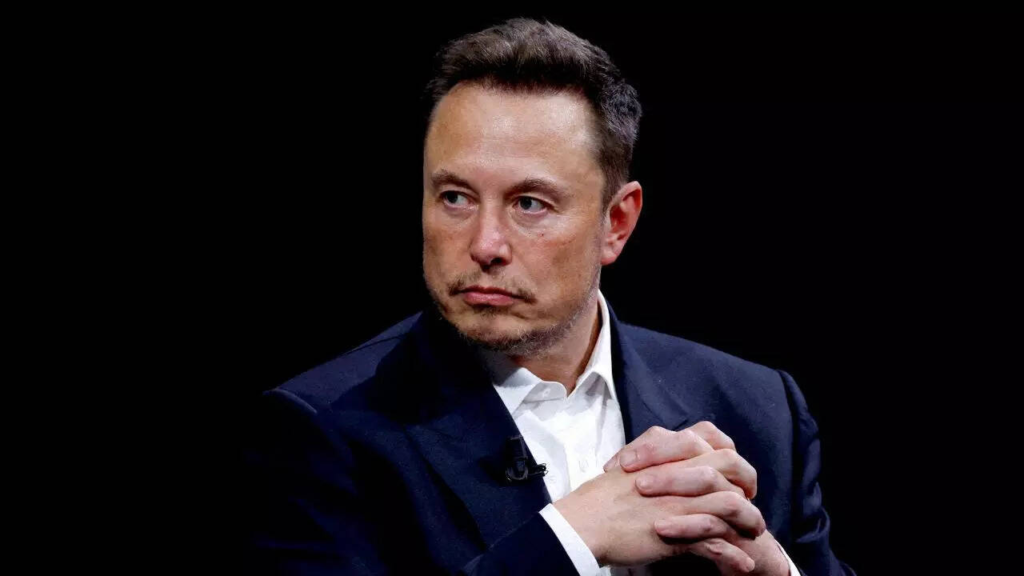In a significant development for Tesla, the electric vehicle (EV) giant’s stock surged nearly 7% on May 28, 2025, following CEO Elon Musk’s announcement that he will prioritize company operations over political engagements. This shift comes after months of controversy surrounding Musk’s high-profile involvement in U.S. politics, particularly his role in the Trump administration’s Department of Government Efficiency (DOGE). Investors appear optimistic about Musk’s renewed commitment to Tesla, especially as the company prepares for key milestones like the upcoming robotaxi launch. This article explores the reasons behind the stock surge, Musk’s changing priorities, and what lies ahead for Tesla in the competitive EV market.

Musk’s Political Step-Back Sparks Investor Confidence
Elon Musk, known for his polarizing political activities, recently confirmed he would scale back his involvement with DOGE, a role that involved advising on federal job cuts and government efficiency measures. Musk’s political endeavors, including his vocal support for President Donald Trump and far-right figures in Europe, had drawn significant backlash, impacting Tesla’s brand and sales. Protests at Tesla showrooms and vandalism incidents in the U.S. and abroad reflected growing discontent among some consumers, particularly Tesla’s traditionally liberal customer base.
On a recent earnings call, Musk stated he would reduce his DOGE commitments to one or two days per week starting in May, redirecting his focus to Tesla’s innovation and growth. “Now that the major work of establishing DOGE is done, I’ll be allocating far more of my time to Tesla,” Musk said, addressing investor concerns about his divided attention. This announcement was met with enthusiasm, as evidenced by the 7% stock jump, signaling a potential turning point for the company.
Analysts suggest that Musk’s decision to refocus on Tesla could help stabilize the company’s performance. Tesla reported a 71% drop in first-quarter profits and a 20% decline in automotive revenue in 2025, with sales slumping in key markets like the U.S. and Europe. The company attributed these challenges to changing political sentiment and global trade uncertainties, including potential tariffs impacting its battery supply chain. Musk’s renewed focus is seen as a strategic move to address these issues and rebuild consumer trust.
Tesla’s Strategic Pivot: Autonomy and Affordability
Musk’s return to Tesla comes at a critical juncture as the company shifts its focus from traditional EV production to autonomous driving technology and affordability. Tesla is gearing up to launch its autonomous vehicle, the Cybercab, a steering-wheel-free “lounge on wheels” priced at approximately $30,000. The company plans to begin robotaxi testing in Austin, Texas, in June 2025, a move Musk believes will position Tesla as a leader in the autonomous vehicle market. “The future of Tesla, overwhelmingly, is autonomy,” Musk emphasized during a recent conference call.
Additionally, Tesla is working on a more affordable EV model, expected to launch later in 2025. While initial plans for a brand-new low-cost vehicle were delayed, Tesla executives confirmed that the new model will leverage existing platforms, such as the Model Y, to reduce production costs. This focus on affordability is crucial as Tesla faces growing competition from rivals like BYD, GM, and Toyota, which have gained market share with advanced, competitively priced EVs.

The emphasis on autonomy and affordability could help Tesla regain its footing in a market where its sales have faltered. In Europe, Tesla registrations dropped by 49% in April 2025 compared to the previous year, despite a 27.8% rise in overall battery electric vehicle sales. In the U.S., Tesla’s sales declined by 13% in the first quarter, while competitors saw EV sales grow by 7%. These figures underscore the challenges Tesla faces in maintaining its dominance in the EV sector.
Brand Damage and the Road to Recovery
Musk’s political activities have undeniably contributed to Tesla’s brand challenges. His alignment with controversial figures and policies led to protests at Tesla dealerships and a perception shift among some consumers. According to Gabor Schreier, Chief Creative Officer at Saffron Brand Consultants, Tesla’s brand recovery will require distancing itself from Musk’s political baggage. “Until the brand distances itself from the political controversy, Musk’s renewed focus may not fully resolve the issue,” Schreier noted.
Despite these challenges, Musk remains confident in Tesla’s long-term potential. He dismissed concerns about brand damage significantly impacting sales, pointing to the company’s strong fundamentals and innovative pipeline. Tesla’s board, led by Chair Robyn Denholm, has also expressed unwavering support for Musk, denying reports that the company was seeking a new CEO. In a statement on X, Denholm called such claims “absolutely false,” affirming Musk’s leadership in executing Tesla’s growth plan.
Investors appear to share this optimism, as Tesla’s stock has shown signs of recovery. After plummeting over 40% earlier in 2025, the stock has rebounded, with a 16% gain in a single week in mid-May, driven by news of Musk’s new compensation package and a board addition. The recent 7% surge further reflects market confidence in Musk’s commitment to Tesla’s core business.
Challenges Ahead: Competition and Market Dynamics
While Musk’s refocus is a positive signal, Tesla faces significant hurdles. The EV market is becoming increasingly competitive, with companies like BYD introducing fast-charging battery systems and European manufacturers offering advanced models. Global trade policies, particularly tariffs on Chinese battery components, could also impact Tesla’s energy storage business, prompting the company to reassess its 2025 delivery forecast.
Moreover, Tesla’s stock volatility remains a concern. Despite recent gains, the stock is still down 13.7% year-to-date, reflecting investor caution. Some analysts, like Ross Gerber, a former Tesla bull, have expressed skepticism about the sustainability of the rebound, citing ongoing brand damage and the need for Musk to fully disengage from politics. Gerber even called for Musk’s exit as CEO, arguing that a new leader focused on car sales could better serve Tesla’s future.

However, Musk’s vision for Tesla extends beyond traditional car sales. His emphasis on autonomous vehicles, AI, and robotaxis aligns with his long-term goal of transforming Tesla into a technology-driven company. The upcoming robotaxi launch and the Cybercab’s potential to redefine urban mobility could be game-changers, provided Tesla can execute its plans effectively.
Investor and Market Reactions
The market’s response to Musk’s announcement has been largely positive, with posts on X reflecting optimism among investors. One user noted, “Elon is BULLISH!” citing Musk’s comment that Tesla’s stock wouldn’t be near all-time highs if the company weren’t in good shape. Another post highlighted Tesla’s stock surge as a “historic turning point,” emphasizing Musk’s shift away from DOGE. While these sentiments are not conclusive, they reflect a growing confidence in Tesla’s trajectory.
Analysts like Dan Ives from Wedbush Securities have called Musk’s decision a “big step in the right direction,” suggesting that his leadership is critical for Tesla’s AI and autonomy ambitions. However, Ives and others caution that rebuilding Tesla’s brand and market share will take time, especially given the political controversies that continue to linger.
Looking Forward: Tesla’s Path to Growth
As Tesla navigates this pivotal moment, Musk’s leadership will be under scrutiny. His ability to deliver on promises like the robotaxi and affordable EV models will be crucial in restoring investor and consumer confidence. Tesla’s focus on innovation, coupled with Musk’s reduced political involvement, could help the company reclaim its position as a leader in the EV industry.
For now, the 7% stock surge signals a vote of confidence from investors, but Tesla’s success will depend on its ability to address competitive pressures, manage global trade challenges, and repair its brand image. As Musk himself stated, “If the ship of America goes down, we all go down with it,” but for Tesla to thrive, his focus must remain firmly on the road ahead.
External Links
- Reuters: Musk, facing criticism and falling Tesla sales, to cut back DOGE work
- Yahoo Finance: Tesla stock rises after Musk says time at DOGE will drop ‘significantly’
- CNBC: Tesla denies report that the EV maker is looking to replace Elon Musk
Must Read :- U.S. Delays 50% EU Tariffs Until July 9 After Trump-Von der Leyen Call






